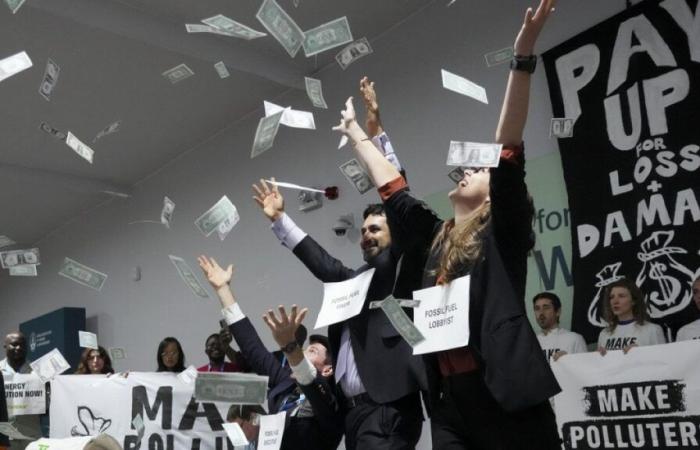The head of the European Parliament delegation to COP29 explains to Euronews that mitigation efforts must be ambitiously strengthened.
ADVERTISEMENT
The latest draft negotiating text, published Thursday by the COP presidency, raised some eyebrows in Baku.
The new document highlights several key questions that remain unanswered, such as the criteria for inclusion in the annual figure, who the contributors are and how much they are expected to provide.
The European Commissioner for Climate, Wopke Hoekstradescribed the lack of clear figures regarding the financing target for the fight against climate change as “unacceptable”.
Although not directly involved in the negotiations, we asked Lydia Pereirapresident of the European Parliament delegation, what she thought:
“We cannot jeopardize mitigation. We need to work with the three elements of climate change: mitigation, adaptation and loss and damage. For us, it is therefore unacceptable that certain countries are putting pressure on us to return to the agreement concluded last year in Dubai. UAE consensus on transition away from fossil fuel use” she emphasized.
A step forward, not a step back
Expecting figures for the new climate finance deal to be proposed soon, Pereira stressed the need to be ambitious on mitigation policies and targets:
“I think the positive aspect of these negotiations is that the EU is ready to step up its efforts in financing the fight against climate change. But on the other hand we have to see that there is no movement backwards instead of the intensification of the game in terms of mitigation“.
In a statement, the Azerbaijani presidency of COP 29 clarified that the document was not final and that figures would be added in the next version. Sources close to the negotiations told Euronews that “although this text is not ideal and requires further consultation, the world is close to seeing Baku’s historic breakthrough “.
Recognition and definition of contributions are the main battle points
The project “recognizes the principle of common but differentiated responsibilities and respective capabilities in light of different national circumstances and emphasizes the need to respect the sovereignty of countries“, the sources said.
The last part gives a glimpse of the obstacles to be overcome, as Eleonora Cogo, of the Italian climate change think tank ECCO, explained to Euronews: “The main areas of disagreement are size – the numbers, the order of magnitude – and who contributes to that goal.” she declared.
The 1992 United Nations Framework Convention designated developed countries responsible for financing the fight against climate change, but a 32-year-old document hardly represents the current reality and these countries “are now saying that there are other countries that could contribute“, Ms. Cogo said, adding that these countries, such as South Korea and China, “already contribute and play an important role, for example through multilateral development banks“.
The crucial question therefore is how this should be recognized, and whether these countries should be allowed to retain the voluntary nature of their contributions or be covered by the Convention.






